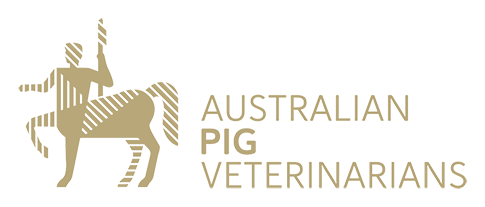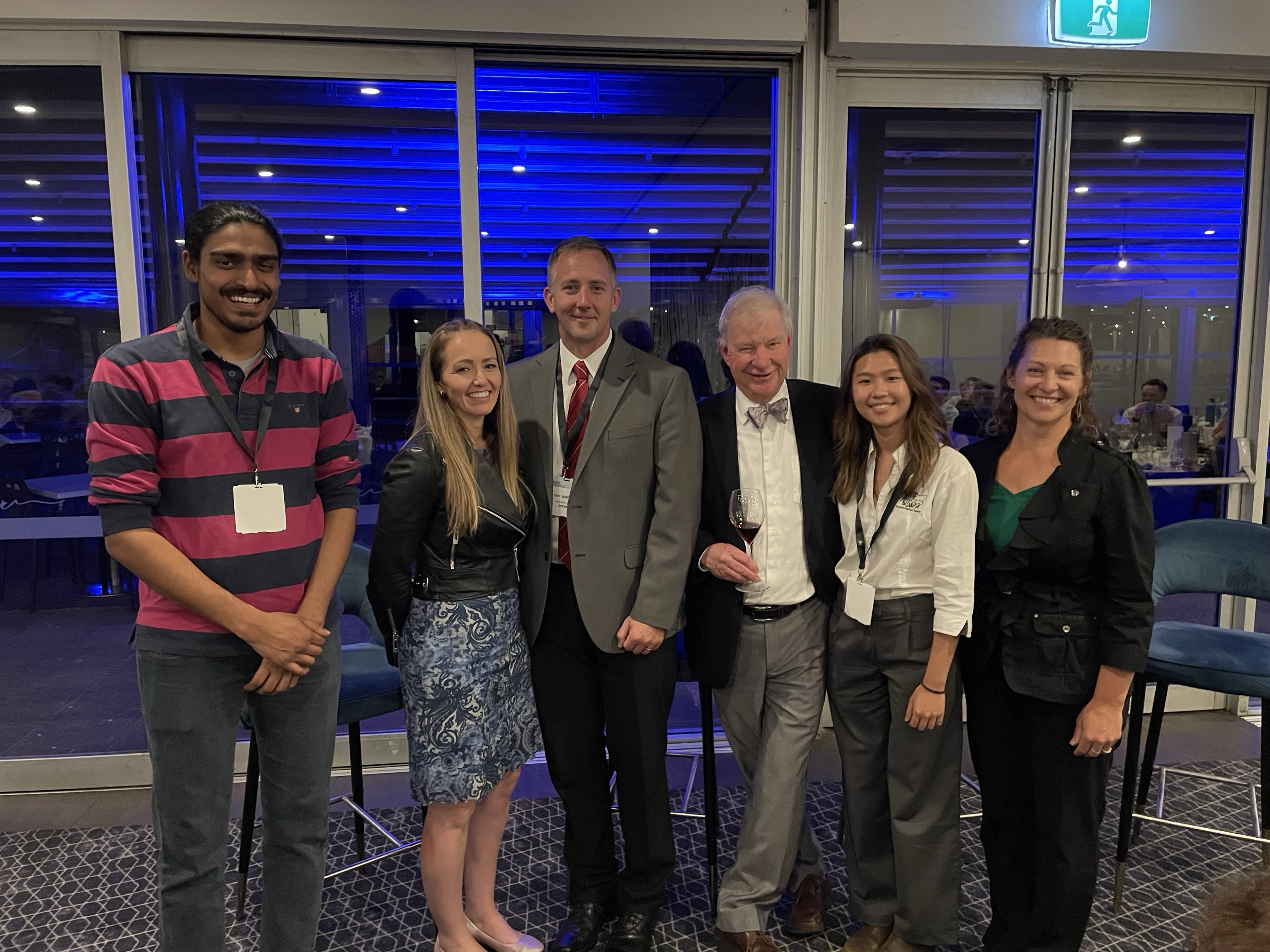SIG in the Spotlight: Australian Pig Veterinarians (APV) group
07 Aug 2025
Pigs are intelligent and engaging animals, and working with them offers unique rewards. In this edition of SIG in the Spotlight Australian Pig Veterinarians (APV) President Dr Sandra Adsett provides an insight into pig veterinary work, from production and research to fostering welfare and health.
Dr Adsett also highlights APV’s mission, the contributions of pig vets to society, and how the group supports and develops expertise within the profession.
Tell us a little about the Australian Pigs Veterinarians (APV) group and its mission?
The Australian Pigs Veterinarians (APV) group operates with a clear mission focused on enhancing the health, welfare, and productivity of pigs throughout Australia. This mission is achieved through several key initiatives, including the promotion of evidence-based veterinary practices, the facilitation of professional development and knowledge exchange among its members, and active advocacy for sound animal health policies within the industry. APV also plays a crucial role in supporting research and innovation, ensuring that Australian pig veterinarians remain at the forefront of pig medicine and contribute to sustainable and ethical production systems. Consequently, APV stands as a professional Special Interest Group dedicated to upholding the highest standards of pig veterinary care and contributing to the long-term viability of the Australian pig industry.
Can you explain how pig vets contribute to society in regard to food safety while still maintaining the welfare of pigs?
Pig veterinarians play an important role in safeguarding public health through food safety while simultaneously upholding high standards of animal welfare. Their contributions to food safety involve implementing stringent biosecurity protocols, developing effective vaccination programs, and monitoring the health of herds and where necessary, treating herds for potentially zoonotic diseases and mitigating their transmission to the human food supply.
Furthermore, they guide responsible antimicrobial stewardship, minimising the risk of residues and combating antimicrobial resistance, which may impact consumer health. Concurrently, pig veterinarians champion pig welfare by diagnosing and treating illnesses, advocating for optimal nutrition and housing conditions, and ensuring humane handling practices across all stages of production. This integrated approach ensures that healthy, unstressed pigs are less susceptible to disease, thereby significantly reducing the risk of contamination within the food supply.
Consequently, the comprehensive efforts of pig veterinarians are fundamental to delivering safe, high-quality pork products to the public, originating from animals raised under ethical and robust welfare conditions.
What resources and supports are available to APV members?
Pig veterinarians are a small, close-knit community. There is excellent mentorship available to veterinarians not only at the start of their career, but also throughout their career. We hold a yearly conference, which delivers current practices and knowledge. Throughout the year, ad hoc webinars and team meetings are held when there is a need to disseminate information to APV members and non-members as we see the entire pig veterinary community as extremely important.
How are preparations going ahead of the APV Conference?
Preparations are going well, registrations have opened. A great program has been put together on a variety of current topics. Currently we are actively seeking interested vet students to come along be part of it, network with pig vets and other industry representatives and gain knowledge.
What impact does APV membership have on career pathways for veterinarians working with pigs?
Membership in APV can provide a multifaceted impact on the careers of veterinarians working within the pig industry. It offers networking opportunities, connecting members with a widespread professional community, including peers and industry leaders which can directly lead to mentorship, and collaborative projects, and new job prospects both within industry and para-industries. APV membership also enhances access to professional development resources, such as specialised conferences, workshops, and publications, ensuring members remain abreast of the latest advancements in pig health, production, and welfare practices. This continuous learning and engagement allows for the development of specific skills as well as maintaining professional credibility, distinguishing members as dedicated specialists within the competitive veterinary landscape. Consequently, APV engagement serves as a strategic investment, fostering continuous growth and expanding professional horizons for veterinarians dedicated to the pig sector.
APV Conference 2024
How does APV foster networking and mentorship among its members, especially for early-career veterinarians?
APV cultivates a robust professional network, primarily facilitated by its annual conference and supplementary ad hoc webinars and meetings conducted throughout the year as required. Further enhancing these networking opportunities, many members actively participate in related industry activities. Both APV and non-APV members encourage and facilitate work experience placements for veterinary undergraduate students, thereby introducing them to the industry's opportunities. These collectively reinforce professional collaboration and support the sustained development of the Australian pig veterinary community.
How does being part of the SIG help vets to advocate and influence policy?
Being part of the APV SIG significantly enhances the capacity to advocate for the pig vets that form the industry as well as influencing policy decisions. By consolidating the collective expertise, resources, and perspectives of members, the APV SIG can create a unified and authoritative voice. This collective strength enables the APV to effectively gather and present evidence-based data, develop comprehensive policy recommendations, and articulate the practical implications of proposed legislation to policymakers.
Furthermore, the APV SIG can establish direct communication channels with legislative bodies, regulatory agencies, and industry stakeholders, facilitating proactive engagement in policy development, offering expert testimony, and providing informed feedback on drafts. Consequently, the APV can serve as a powerful conduit for translating veterinary expertise in the area of pig health and welfare into effective policy advocacy, ultimately shaping legislation that benefits animal health, public safety, and the profession.
How did you first get involved in the SIG and when did you become President?
I became involved in the SIG only 2 years ago and became President a year ago after having been Vice President of the SIG for the 12 months prior. For me, being part of the SIG allows me to network with many other veterinary professionals both within the pig industry and external to it. I have also been on the Policy Advisory Council for the past 2 years and have found this to be extremely interesting and provides a sense of satisfaction that I am part of formulating policies that can benefit all aspects of the veterinary profession and the animals that we care for.



